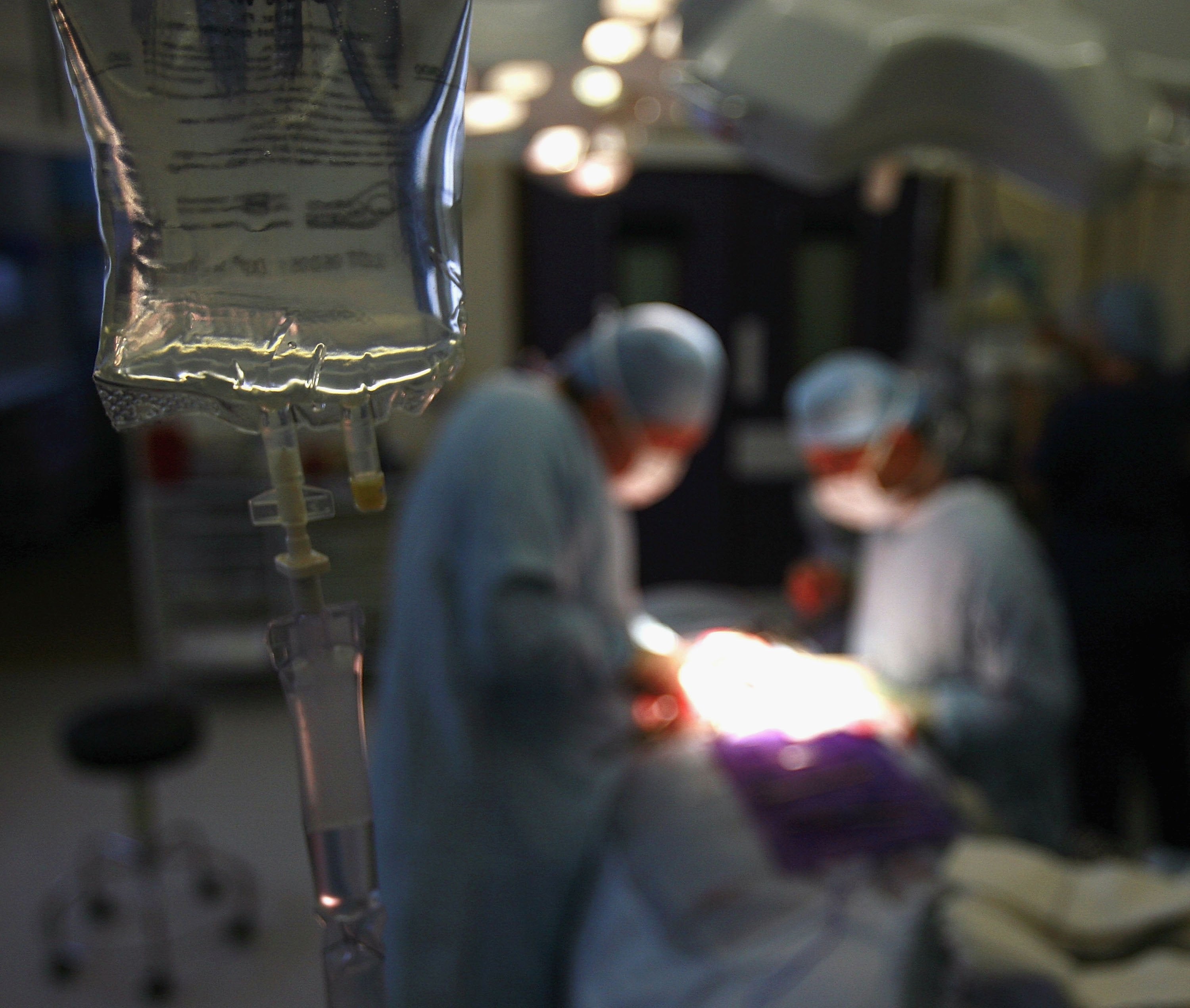NHS cancelled 13,000 operations in last two months
Thousands of people had to delay vital hip, knee and other surgeries in October and November

Your support helps us to tell the story
From reproductive rights to climate change to Big Tech, The Independent is on the ground when the story is developing. Whether it's investigating the financials of Elon Musk's pro-Trump PAC or producing our latest documentary, 'The A Word', which shines a light on the American women fighting for reproductive rights, we know how important it is to parse out the facts from the messaging.
At such a critical moment in US history, we need reporters on the ground. Your donation allows us to keep sending journalists to speak to both sides of the story.
The Independent is trusted by Americans across the entire political spectrum. And unlike many other quality news outlets, we choose not to lock Americans out of our reporting and analysis with paywalls. We believe quality journalism should be available to everyone, paid for by those who can afford it.
Your support makes all the difference.Data suggests that some 13,000 planned operations have been cancelled over the past two months, delaying vital surgeries for thousands of people across the country.
Figures from the Royal College of Emergency Medicine (RCEM) showed that 6,726 operations were cancelled in November, while 6,335 were cancelled in October.
Specific reasons for the cancellations were not provided but it appears that the majority were cancelled by the NHS, which previously stopped recording the number of cancelled operations because of the Covid-19 pandemic. Only recently has the NHS resumed the practice.
When asked about the cancellations, an NHS spokesperson said that elective treatments were continuing with patients who were prioritised based on their individual need and noted that 1.3 million patients began elective procedures in September.
“There is no doubt that pressure on the NHS is incredibly high with October seeing the highest ever number of 999 calls answered for a single month as well as being the busiest for major A&Es for that time of the year,” the spokesperson added.
The president of the Royal College of Surgeons of England (RCS), Professor Neil Mortensen, said the situation was “alarming”.
He said: “It is very alarming that more than 13,000 planned operations were cancelled in the past two months alone.
“This means that thousands of patients who had prepared themselves for vital hip, knee and other types of planned surgery were left waiting in limbo for their treatment.
“Colleagues working in emergency medicine have been facing ‘winter pressures’ since the summer.”
He noted that although NHS staff had been working “flat out”, there were not enough hospital beds to meet the surging demand for services as the pandemic continues to ravage hospital capacity. He said that an urgent effort was underway to discharge patients in order to free up beds for those who need operations.
“The NHS is staffed by world-leading doctors and nurses – they cannot care for patients properly with a bed base the size of a postage stamp.
Professor Mortensen added that the RCS was aligned with the RCEM in calling for the government to increase the number of hospital beds across the country.
West Streeting, Labour’s shadow health secretary said that it was “not good enough” that thousands of people had their operations cancelled. “Waiting lists are already at record levels, yet the government has no plan to address the chronic shortages in GPs, doctors, nurses and social care staff,” he said.
A spokesperson from the Department of Health and Social Care said that significant investment had been made towards improving access to healthcare and reducing wait times.
“We are committed to taking action to ensure people get the treatment they need, which is why we are investing an extra £2bn this year and £8bn over the next three years to cut waiting times, and deliver an extra nine million checks, scans and operations.
“We’re making sure our record investment has a lasting impact and helps address health disparities by deploying more efficient, innovative ways of working, including opening new surgical hubs and at least 100 community diagnostic centres over the next three years to make getting checked out quicker and more convenient.”
Join our commenting forum
Join thought-provoking conversations, follow other Independent readers and see their replies
Comments